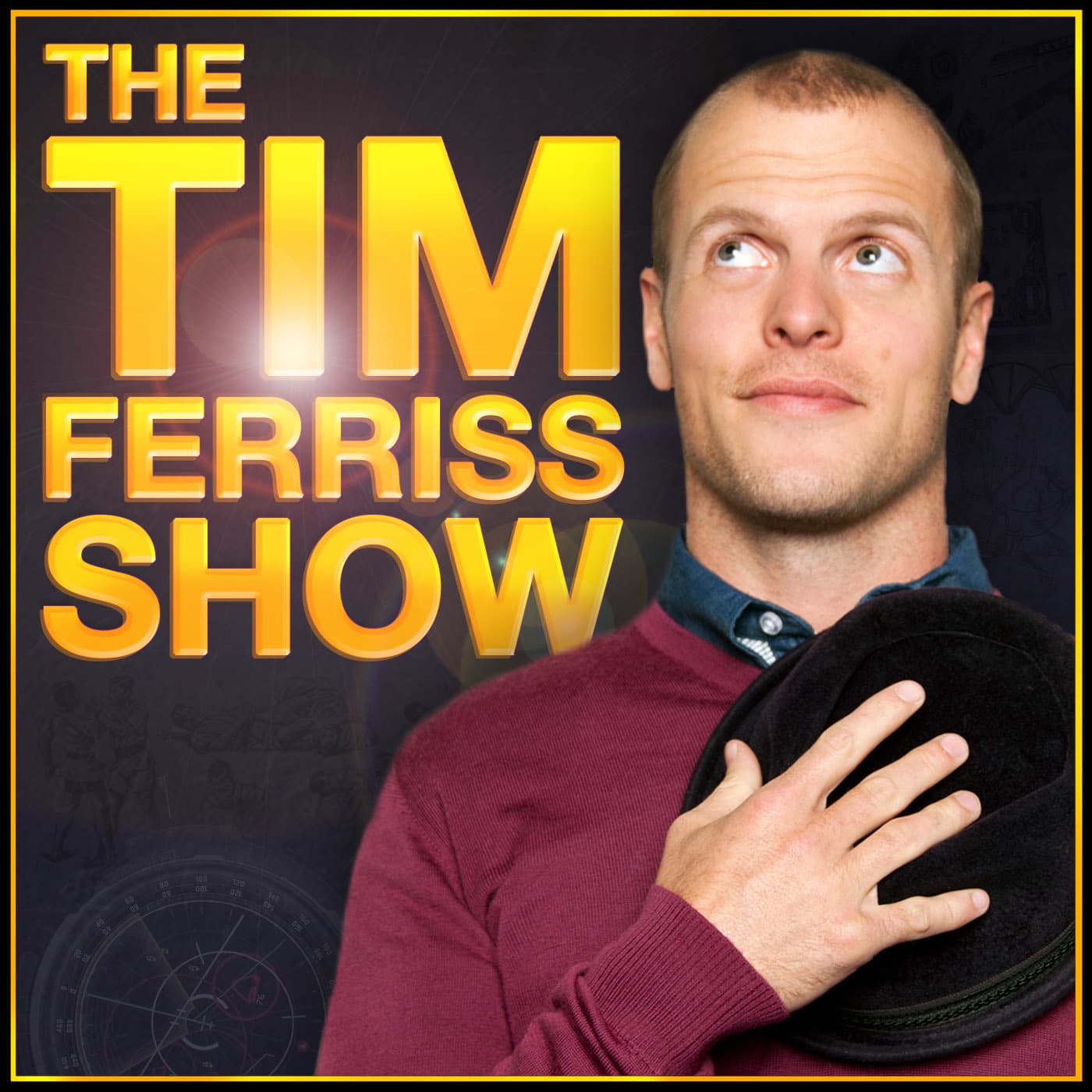
December 5, 2024 • 2hr 11min
#781: David Whyte, Poet — Spacious Ease, Irish Koans, Writing in Delirium, and Revelations from a Yak Manger
The Tim Ferriss Show

Key Takeaways
- Poetry as a "secret code to life" - David Whyte discovered poetry at age 7 as a way to access deeper truths that many adults seemed to have forgotten
- The "conversational nature of reality" - All meaningful interactions involve mutual invitation and vulnerability
- Most people live "4-5 years behind the curve of their own transformation" - We often resist acknowledging how we've outgrown old identities and desires
- Heartbreak is inevitable and necessary - The only way to avoid heartbreak is to not care, which leads to an abstract, meaningless life
- Poetry helps articulate what seems impossible to say - Finding words for profound experiences allows us to access and share them
Introduction
David Whyte is a poet and author who explores what he calls "the conversational nature of reality" through his writing. With degrees in marine zoology and extensive experience as a naturalist guide, he brings a unique perspective combining scientific observation with poetic insight. The conversation covers his transformative experiences, views on poetry and Zen practice, and insights about human nature and relationships.
Topics Discussed
Early Spiritual Experiences (10:47)
Whyte describes a profound experience while severely ill with amoebic dysentery in a yak manger in the Himalayas in his mid-20s. After three days of fever dreams, he had a breakthrough realization about the nature of identity:
- The "David Whyte project" - his constructed identity - was revealed as arbitrary and limiting
- True identity emerges from below the horizon of current understanding
- Writing good poetry comes from this place of not-yet-known potential
The Conversational Nature of Reality (17:41)
Whyte explains his core philosophy about the inherently conversational nature of existence:
- All meaningful interaction involves mutual invitation between parties
- Vulnerability is essential - we only truly invite others in when we need help or understanding
- Inner and outer horizons - putting what's emerging within us in dialogue with what lies ahead
- When conversation stops, meaningful exchange has ended even if words continue
Poetry and Transformation (38:52)
Discussion of how poetry serves as a vehicle for personal transformation:
- Poetry provides language for experiences that seem impossible to articulate
- Helps process profound experiences like grief and loss
- Creates coordinates for accessing transformative insights again later
- Serves as consolation by validating difficult experiences while pointing to possibility
Time and Presence (1:44:57)
Whyte shares his essay on Time, written in a single day at an Italian castle, exploring our relationship with time:
- "Time is not slipping through our fingers - we are slipping through the fingers of time"
- Our presence and attention affect how time moves
- Love creates timeless states where normal limitations fall away
- The key is loosening our grip on controlling time
Zen Practice and Heartbreak (1:10:38)
Discussion of Whyte's decades-long Zen practice and its relationship to poetry:
- Zen as "a deep path of heartbreak" - breaking down artificial divisions
- The word "Zen" seduces with its coolness but leads to necessary undoing
- Heartbreak is inevitable - the only way to avoid it is to not care
- Better to have your heart broken over something you truly care about
Advice for Aspiring Poets (2:03:17)
Whyte offers guidance for those interested in exploring poetry:
- Find poets whose voice speaks to you personally
- Start with accessible poets like Mary Oliver who are "invitational"
- Let one voice lead you to others naturally
- Don't feel obligated to engage with impenetrable work until ready
Conclusion
This wide-ranging conversation explores how poetry can serve as a vehicle for accessing deeper truths about human experience and reality itself. Whyte emphasizes the importance of vulnerability, presence, and willingness to engage with heartbreak as essential elements of a meaningful life. His work provides language and frameworks for understanding transformative experiences that often seem beyond words.